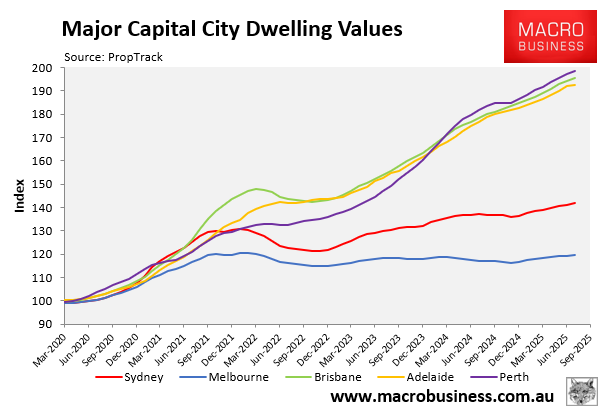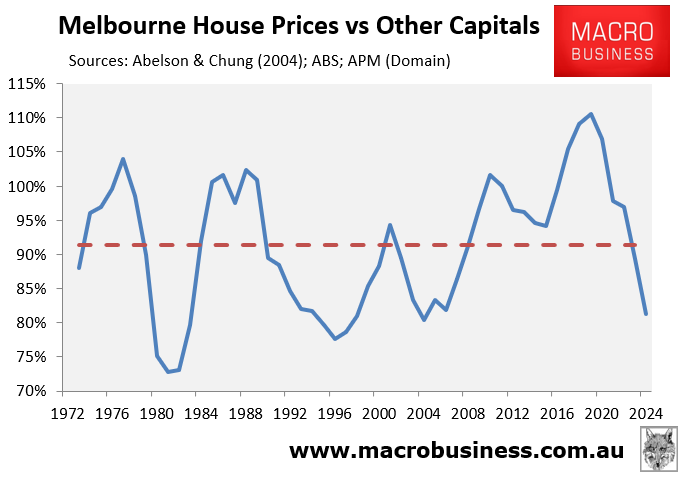If you want a cheaper house, move to Melbourne
The latest dwelling value results from PropTrack show that Melbourne continues to lag the other major capital cities for price growth.
Melbourne dwelling values rose by just 2.1% in the year to August, easily the softest growth among the state capitals.
As illustrated in the following chart, Melbourne dwelling value growth has lagged the other major capitals since the onset of the Covid-19 pandemic in March 2020.

Since March 2020, Melbourne dwelling values have risen by only 20%, compared to 42% in Sydney, 96% in Brisbane, 99% in Perth, and 93% in Adelaide.
Melbourne’s sluggish price growth has seen it become the most affordable housing market among Australia’s major capital cities.
As illustrated below by PropTrack, Melbourne’s median dwelling value of $830,000 in August was the lowest out of the five major capitals, tracking $108,000 (11.5%) below the combined capital city average.

Melbourne’s relative affordability is also illustrated by the following time series chart, derived from quarterly Domain median house price data, plotting the city’s median house price as a ratio of the other capital cities.

As you can see, Melbourne housing’s relative affordability is at its most favourable level in around 20 years.
Melbourne’s affordability advantage may be short-lived, however, with KPMG projecting Melbourne to experience the strongest price growth in 2026, amid growing interest from ‘bargain hunters’.
KPMG expects Melbourne house prices to rise by 6.6% next year, easily beating the national average rise of 4.5%.
“We expect strong gains next year, particularly in the unit market, where affordability is much more favourable”, said KPMG chief economist Brendan Rynne.
Buyer advocate Arin Russell added that high-income investors from Western Australia have begun shifting their sights to Melbourne, looking to cash in “before the recovery accelerates”.
“We’re seeing people from Western Australia targeting Melbourne, some first-home buyers, some experienced investors, and they’re chasing value”, he said.
Melbourne’s economy is weak. The Victorian government is a basket case, with the state drowning in debt. And crime is a growing concern.
However, at least Melbourne housing has become more affordable.
